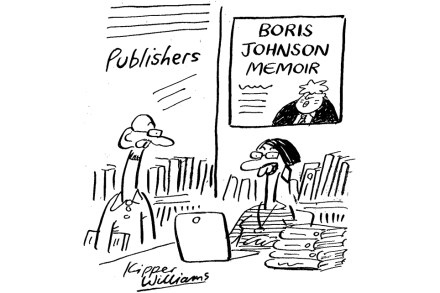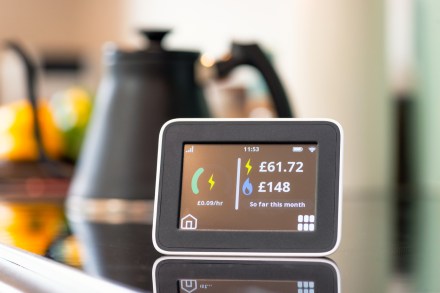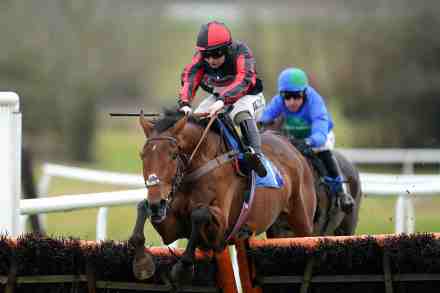‘I’ve booked Downing Street for the boozy launch party.’
‘I’ve booked Downing Street for the boozy launch party.’

‘I’ve booked Downing Street for the boozy launch party.’

‘I keep forgetting if I’ve misplaced classified documents.’



New traditional Scottish song


‘Move over – you’re bed-blocking!’

‘Pitiful.’ That’s the verdict of Damian Green MP, acting chair of the digital, culture, media and sport committee, on the payouts that streaming companies such as Spotify and Apple Music provide to musicians. An update to the group’s Economics of Music Streaming report, published on Friday, calls on the government to take a ‘proactive strategic role’ to make sure Britain’s music industry – one of the few that truly is world-beating – gets the cash it deserves. With streaming now accounting for 84 per cent of UK recorded music revenues, its businesses model really matters. Spotify controls up to 60 per cent of the British streaming market (Apple Music and

Over the past two generations, those with property in the UK have been unwittingly transformed from owners to investors. This makes no sense, and has led to a lot of baby boomers feeling smug and clever when in reality they’ve just been lucky. However, the effect has been lasting and means property owners are now a politically valuable group – and that what your house is worth has disproportionately strong influence on how rich you feel. And of course, now that everyone has an interest in the value of their home, there are plenty of supposed experts willing to pretend they’re helping you look ahead to see what will happen

At the end of the Frasier theme song, its star Kelsey Grammer always sang the words: ‘Frasier has left the building!’ And when the show finished in 2004, it felt as if Frasier, Niles, Daphne, Martin, Roz and the rest had indeed left the building. In truth, the popular programme did not end in glory. Ever since Niles and Daphne had become a couple, ending its greatest running joke, there was a sense of past glories being retrodden. By the time Daphne’s siblings appeared with the strangest ‘British’ accents ever known, it was hard to avoid the feeling that Frasier’s departure was past due. It is therefore both surprising and alarming that rumours of
Sirloin, rump, tomahawk, fillet, rib-eye. However it comes, is there any food that gets salivated over more than steak? Restaurant reviewers compete to outdo one another with their florid descriptions of the sensual delights of tucking into a particularly prime example. But then steak comes loaded with far more than a dollop of garlic butter or hollandaise. More recently, tucking into a juicy slab of meat has also become a bold statement of ‘I will eat – and live – as I please’, a carpe diem rejection of vegan-botherers and eco-worriers. Veganism is on the rise, with the number of vegans in Britain quadrupling between 2014 and 2019. This month


It’s every skier’s holiday nightmare. You turn up to the slopes and, instead of fresh white powder, you’re greeted by a mass of sludge slowly liquefying into green-brown mud. The Alps have had a torrid season, with higher-than-average temperatures and heavy rain forcing many resorts to close, sometimes within weeks of opening. For long stretches it was too warm even to operate snow cannons, which can magic up artificial snow but require low temperatures to work. While snowfall has picked up in time to save the season in some places, in Italy alone there are now 200 fewer ski resorts than in the 1980s. But there are still some pockets

One initially overlooked aspect of Liz Truss and Kwasi Kwarteng’s ill-fated mini-Budget was the plan to restore VAT-free shopping for tourists. The scheme, which allowed non-EU visitors to claim back 20 per cent on their purchases, was scrapped in 2020 by then chancellor Rishi Sunak but looked set for a comeback. This was excellent news where I live – Japan – and throughout Asia, where holidays are short and shopping plays a big part in overseas trips. But just as tourists were writing up their lists and planning their itineraries, Jeremy Hunt pulled the rug from under their feet by cancelling the uncancelling before it had even reached Kwarteng’s promised
Are you suffering from SMS? Smart meter stress, that is. When we decided recently to accept our energy provider’s offer to install a smart meter, I had no clue how anxiety-inducing the digital display on the little black monitor could be. Smart meters tell us (and our suppliers) how much energy we’re using, minute by minute. In theory they make life easier, helping us identify where we can reduce consumption and sending automatic readings so that we’re less likely to underpay or overpay on our bills. There are already 29.5 million smart meters installed across the UK, and by the end of 2025 every home and office in Britain will have been offered one. But there’s a


The pundits called it long ago: Avatar 2: The Way of Water was going to be a flop. They did allow that betting against the so-called ‘king of the world’ James Cameron was rash – after all, Titanic and the first Avatar film overcame almost hysterically negative buzz in order to become box office behemoths. But there were too many reasons why the latest Avatar was going to fail. Nobody remembered the first film, they said. It wasn’t meme-able, they warned. Sam Worthington, its supposed star, was a nobody. There were too many blue people in it. The first film had had the novelty of 3D, but that was now a completely defunct format, popular only in China.

‘New year, new you’, or so they say. And as sure as eggs is eggs (particularly for the high protein advocates), new year’s resolutions for many will have revolved around the quest for a new body. I use the word ‘body’ specifically because our prevailing culture keeps finding new and alarming ways to reduce us all, but women in the most dehumanising terms, into mere bodies; bodies that can be chopped, changed, rearranged increasingly even to accommodate the outward trappings of the opposite sex. This manifests itself most completely of course in porn, as it always has, where the cold-eyed camera sees everything of the body and nothing of the
I love pasta bake more than is reasonable: I would struggle to name a dish that brings the same level of comfort even from first thought. From the moment I consider making one, I am already reassured: confident in the knowledge that it is a dish which will deliver everything that is required for culinary succour. This isn’t your average student pasta bake: slow-cooked ragu, a topping cooked at a hot temperature until blackened in places and blistering; a time investment that means delayed gratification, but for the most part can be left to its own devices, to simmer, to bubble, to bake. Saucy and deeply savoury, hot and packed

Ground conditions at both Warwick and Kempton Park are likely to decide the winners of the two big weekend handicaps tomorrow. A month ago, clerks of the course and groundsmen up and down the country feared it might never rain again. Now it seems to pour almost every day and, as a result, it is essential to back horses that revel in the mud. The big race at Warwick tomorrow is the Wigley Group Classic Handicap Chase (3 p.m.) over a marathon trip of 3 miles 5 furlongs. With the going already ‘heavy, soft in places’ and with more rain forecast, only gritty battlers who can handle the ground are

The Menu is a horror film about fine dining that revolves around a psychotic head chef (Ralph Fiennes) who runs a destination restaurant on an American island. The island is uninhabited apart from the chef and his staff, who pluck it for the most refined marine treats to serve the obnoxious clientele on a nightly surprise menu. As I sat in the cinema watching it recently, I felt delighted, then sick, then scared – and then enlightened. Enlightened because I finally understood that fine dining – once the summit of high living and my own former obsession as a greedy twenty-something working in lifestyle journalism – is over. It is

Hyperbole in estate agents’ brochures isn’t unusual – but when it comes to a write-up for Great Tangley Manor, which has gone on the market for £8.95 million, overkill is almost impossible. Believed to be the UK’s oldest continuously inhabited property – its Saxon foundations date from 1016 – the Grade I-listed moated manor house, in the village of Wonersh in the Surrey Hills Area of Outstanding Natural Beauty, comes with an extraordinary roll call of associated famous names. From the spheres of royalty, art, literature, garden design and even America’s Gilded Age, all have played their part in shaping secluded Great Tangley into a country house with a compelling story. The

The revelation that Prince Willy allegedly broke Prince Harold’s necklace in a fight shows how unshockable we’ve become when it comes to Harry and Meghan drama. Because my main question after this particular episode isn’t about press standards or dysfunction in the royal family – it’s ‘why was he wearing a necklace?’. When I was a child, my mother would impress upon my brother, sister and me the importance of not being seen to do or wear anything that could be regarded as ‘naff’. Tattoos and earrings or necklaces (on men) were all deemed especially naff. As a result, between the three of us we have 12 tattoos at the last count. I
